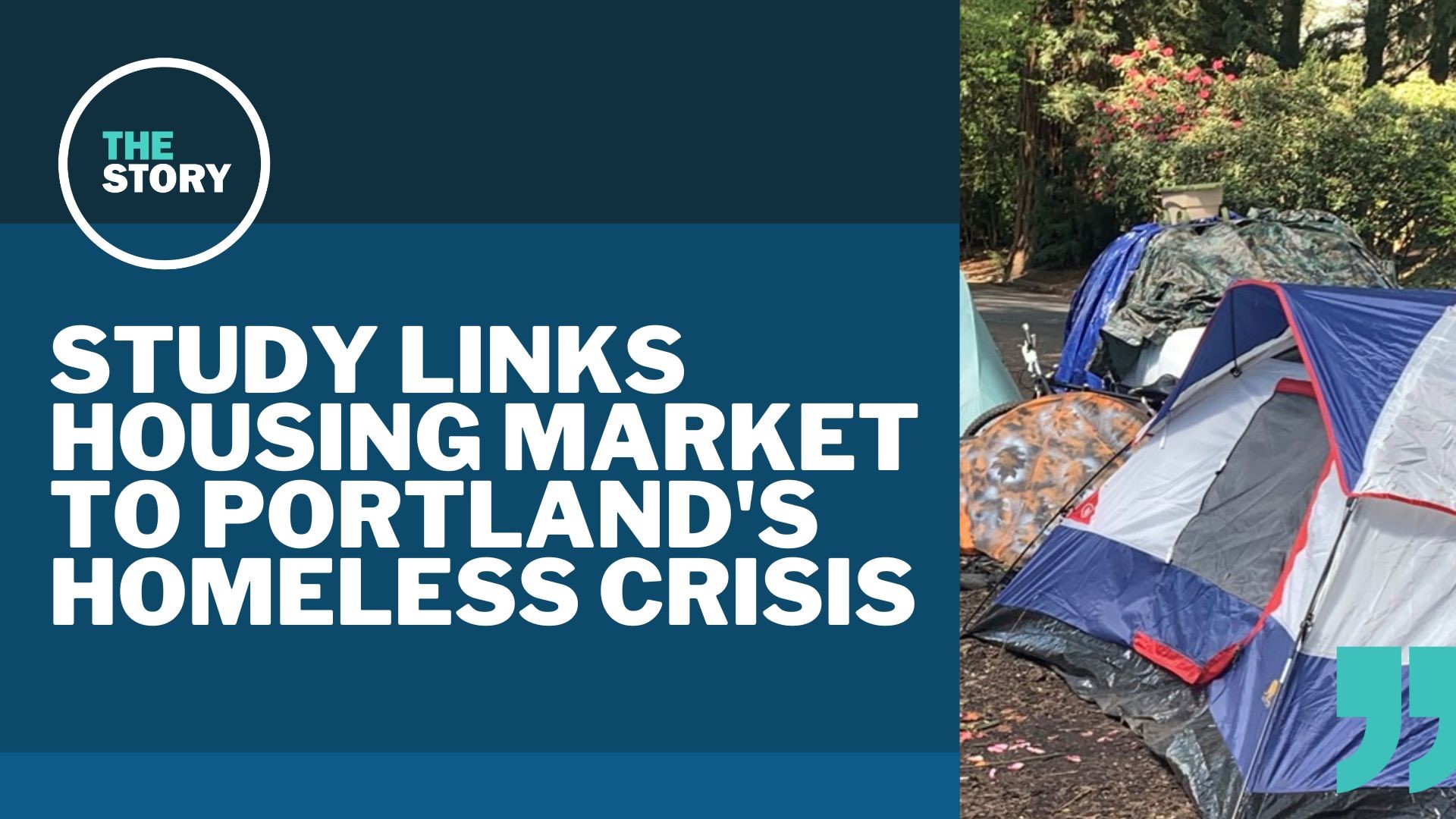PORTLAND, Ore. — A new study by a pair of researchers tried to find the root cause of homelessness in cities across the U.S. It revealed how Portland's housing market plays a much bigger part in the crisis than many might think.
The urban study called “Homelessness is a Housing Problem” found that the biggest factors in the homeless crisis are not necessarily addiction or mental health but rather a combination of high rent prices and a lack of affordable housing.
“Any given night in Multnomah County, five per 1,000 people are experiencing homelessness, which is quite a high number,” said Clayton Aldern, one of the researchers behind the study.
The data dates back to 2019 and looks at the 30 largest urban areas in the country. It found Multnomah County to have among the lowest rental vacancy rates and highest rent prices. Multnomah County was the fourth-highest when it comes to the number of people experiencing homelessness each night.
The average rent in Portland is nearly $1,700 a month, which is higher than the national average. That's according to data from Yardi Matrix, a national real estate research group.
Researchers said factors like poverty, unemployment and severe mental illness are factors in the crisis, but that studies all point to one thing as the root cause: the housing market.
“Basically, rents and rental vacancy rates, how tight your housing market is, those are the factors that explain variation and rates of per capita homelessness around the country,” said Aldern.
So, why does the housing market differ from state to state? And why are rents so high in Portland?
Aldern said the reasons are population growth and inflation.
"The population growths that we've seen in Portland and Seattle and San Francisco over the past couple of years, those booms haven't been met with an adequate supply response. So you see these really tight housing markets' rising rents and not enough housing for everyone,” Aldern explained.
Some disagree, like Ron Garcia at the Rental Housing Alliance of Oregon, which represents about 2,000 landlords.
“I would say it's all our crisis, it's all what can we do and I do not see rising rents as any of the key indicators as to why the homeless populations grow. It's just not it.”
Garcia argues landlords are a key component to fair and affordable housing and shouldn’t be to blame for the homeless crisis.
“I don't really see the escalation in rent having anything to do with — I mean, very little to do with homelessness … if your life has put you in a position where you cannot afford basic sustenance including housing and food, it isn't because the local rents have been raised. I think there's a bigger calamity happening.”
According to researchers behind the study, it will take building more affordable housing to accommodate the growing homeless population.

